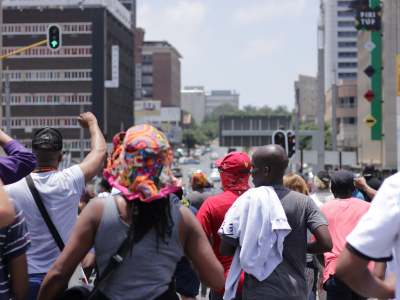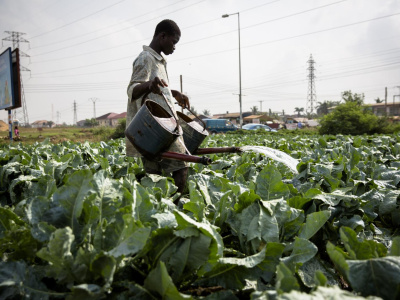
Mobilising African resources for Agenda 2063: A question of capacity – Challenges series 2016
What's on this page
Discussions for the UN Agenda 2030 have set high expectations for domestic resource mobilisation as a self-sustaining development finance strategy. Agenda 2063 is a roadmap for structurally transforming Africa over 50 years, and emphasises the importance of domestic resource mobilisation for a successful implementation of the continental development blueprint. Why then do African countries do not mobilise enough domestic resources to finance their development? The response is clearly linked to insufficient human, institutional and organisation capacity to mobilise and utilise domestic resources to finance Africa’s development agenda. The Africa Capacity Building Foundation share their perspective on the challenges for sustainable development in 2016 and beyond. Domestic resource mobilisation can potentially support the legitimacy of the state and enhance accountability between the state and its citizens; and increase “ownership” of the development process. Domestic resource mobilisation can help: (1) Reduce Africa’s dependence on external flows, thereby lowering one of the sources of damaging volatility in resource availability, and minimising vulnerability to external shocks; (2) Give African countries greater policy space, increasing their ownership of the development process as well as strengthening their State capacity; and (3) Create important positive externalities and send positive sign to donors and investors, thereby augmenting external resource inflows. The financing of Agenda 2063 has hardly been examined, and the question also remains of who will finance the Agenda 2030 set out in the UN Sustainable Development Goals?
For the ACBF, capacity is simply defined as the ability of people, organisations, and society as a whole to manage their affairs successfully. There is no doubt today that capacity in all its forms and dimensions has often been the mother of all missing links in Africa’s development efforts. Africa needs institutional, organisational, and human capacity. Efforts have been made to that effect but there is room for further improvement.To finance its own development and the various national and continental programs, African countries need to strengthen their capacities for domestic resource mobilisation. For instance, it is assumed that by strengthening the capacity for domestic resource mobilisation, Africa will be able to efficiently mobilise and utilise the annual investment of US$ 93 billion required over the next decade to close its infrastructure gap, recruit the 3.8 million teachers needed within five years to achieve universal primary education, and bear the cost of halving the number of people living in extreme poverty which is estimated to be US$ 4.2 billion for sub-Saharan Africa.



